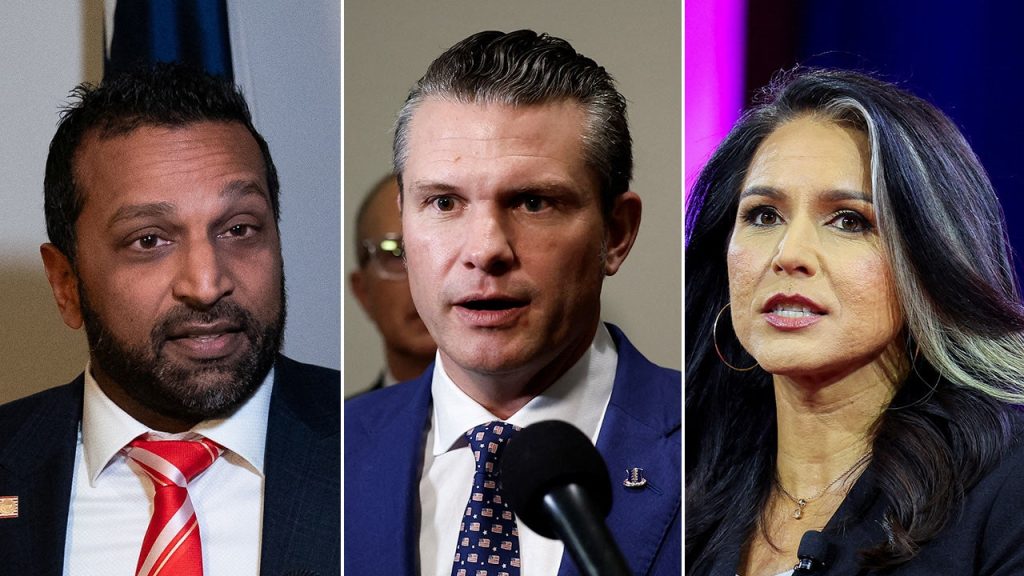The New Year’s Day terrorist attack in New Orleans, where a suspect drove a car into a crowd killing 14 and injuring dozens, has intensified calls from Senate Republicans for the expedited confirmation of President-elect Donald Trump’s national security team. The attack, which reportedly drew inspiration from ISIS, has underscored the urgent need for strong leadership in key national security positions, according to several prominent Republican senators. This incident follows a pattern of rising security concerns across the nation, further fueling the Republicans’ push for a swift confirmation process. The desire for rapid confirmation pre-dated the New Orleans attack, with Republicans already advocating for quick approval of nominees such as Kash Patel for FBI Director, Tulsi Gabbard for Director of National Intelligence, and Pete Hegseth for Secretary of Defense. The attack, however, has significantly amplified these calls, transforming the issue from one of political expediency to one of national security imperative.
Republican senators, including incoming Senate Republican Leader John Thune, incoming Senate Majority Whip John Barrasso, and Senators Rick Scott, Katie Britt, and Marsha Blackburn, have all publicly stressed the urgency of confirming Trump’s national security team. Their arguments center on the need for a robust and experienced leadership team to address the escalating threats facing the nation, both domestically and internationally. The New Orleans attack, with its suspected ISIS link, serves as a stark illustration of the dangers posed by international terrorism and the critical importance of having a fully staffed and operational national security apparatus. The senators argue that delays in confirmation could leave the nation vulnerable and hinder the government’s ability to respond effectively to future threats.
Beyond the immediate response to the New Orleans attack, the Republican senators’ emphasis on swift confirmation reflects a broader concern about the current state of national security and the perceived need for a change in leadership. They argue that Trump’s nominees possess the necessary experience and resolve to confront these challenges and safeguard the nation’s interests. The push for rapid confirmation also underscores the Republican Party’s commitment to supporting Trump’s agenda and ensuring he has the team he needs to implement his vision for national security. This unified front reflects a strategic decision by the Republicans to prioritize national security and project an image of strength and decisiveness in the face of growing threats.
The calls for expedited confirmation also highlight the political dynamics at play. With Republicans controlling the Senate, they have the power to push through Trump’s nominees quickly. However, the Democrats may choose to resist these efforts, leading to potential delays and political battles. The extent to which the Democrats cooperate with the Republicans on these confirmations will likely depend on their assessment of the nominees’ qualifications and their broader political strategy. The confirmation process could become a key battleground in the ongoing power struggle between the two parties.
Further complicating the issue is the emergence of information suggesting that the FBI may have lacked crucial intelligence prior to the New Orleans attack. Senator Marsha Blackburn criticized the FBI’s apparent intelligence failure, citing a report that journalists reached the suspect’s home before the agency. This revelation has fueled calls for stronger leadership at the FBI and added further weight to the argument for confirming Kash Patel as Director. Blackburn’s criticism underscores a growing distrust of the FBI within certain segments of the Republican Party, and reinforces the desire for a change in leadership. The FBI’s response to the criticism, and the evidence presented regarding their pre-attack intelligence, will likely play a significant role in the confirmation process for Patel and other national security nominees.
The New Orleans attack and the subsequent push for expedited confirmation of Trump’s national security team highlight the complex and often contentious intersection of national security concerns and political maneuvering. The urgency of the situation, coupled with the political divisions within Congress, creates a challenging environment for navigating the confirmation process. The coming weeks will be crucial in determining the fate of Trump’s nominees and the future direction of the nation’s national security apparatus. The outcome of these confirmation battles will have significant implications for the new administration’s ability to address the pressing security challenges facing the nation.

